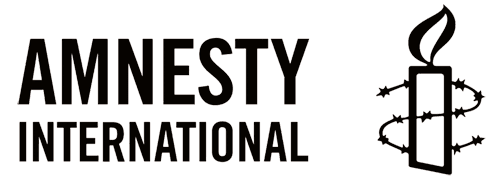Nicaraguassa on pidätetty opiskelijajohtajia ja aktivisteja mielenosoituksissa. Vaadi vapauttamista. Vastaa VETOAN NICARAGUA NIMESI (90snt).
Detention of student leaders and other social activists have increased in Nicaragua as the government persists in its strategy of persecution and criminalization as a punishment against those taking part in nationwide protests.
The Nicaragua government’s persecution and criminalization strategy to clamp down those participating in the ongoing protests throughout the country deepened this week, with dozens of new detentions, including those of Amaya Coppens (23), a Nicaraguan-Belgian medical student leader, detained with Sergio Midence (30) in the city of Leon (Northwest) on 10 September. The police alleged in media outputs that they are responsible for acts of “terrorism”, “arson”, “assaults” and “illegal possession of firearms”, amongst other accusations. They have not yet been formally presented before a court.
These detainees join the more than 400 social leaders and activists counted, by local and international civil society organizations, as arrested in the context of social protests. Campesinos, feminists, students, merchants as well as other people have joined the protests without affiliation or activism.
The Nicaraguan Centre for Human Rights (Centro Nicaragüense por los Derechos Humanos, CENIDH) reported that recent detentions did not comply with due process guarantees, including the use of pro-government armed groups for detaining people, police trespassing in homes without warrants, presentation of detainees before a judge after 48 hours, which is the maximum amount of time legally allowed, amongst other practices that would amount to arbitrary detentions. The United Nations Human Rights Office of the High Commissioner expressed its concern over the fact that these new detentions show the persistence of a pattern of arbitrary detentions exposed in its recent report on Nicaragua’s human rights violations in the context of the protests.
Please write immediately in Spanish or your own language:
- Calling for the immediate release of all student leaders, activists or other protestors detained solely on the grounds of the peaceful exercise of their right to freedom of expression and assembly;
- Demanding respect of due process rights of all student leaders, activists or other protestors detained, including their timely presentation in courts, and ensuring access to their families and lawyers of their choosing;
- Calling on the authorities for an immediate halt of the strategy of persecution, detention and criminalization of students and other activists exercising their legitimate right to freedom of expression and peaceful assembly.
Taustatietoa
Last April protests erupted in Nicaragua over a proposal for reforming social security in the country. The reform initially proposed and approved by President Daniel Ortega implied an increase to contributions by workers and employers to the country’s social security system, and an additional contribution by retired pensioners that would provoke a decrease in pensions. After days of protests, President Ortega announced on 22 April that the reform was finally revoked by the Nicaraguan Institute of Social Security.
However, the harsh response from authorities to the initial protests resulted in scores of people killed and detained and ignited a massive response from people taking the streets again, this time exposing and calling for an end to the Nicaragua’s government repressive strategies and for democratic reforms. Protests continue to take place to this day.
Amnesty International has documented in situ the human rights violations that occurred in the context of the current crisis facing Nicaragua. Many of the findings and conclusions of our investigation and monitoring were included in the report Shooting to Kill: Strategies for the Repression of Social Protest in Nicaragua, which concludes that the Nicaraguan authorities have carried out a repressive strategy, sometimes intentionally lethal, aimed at punishing dissenting voices, discouraging continued citizen criticism and covering up the commission of human rights violations.
Nicaragua: Shoot to kill: Nicaragua’s strategy to repress protest
More recently, Amnesty International issued an open letter addressed to President Daniel Ortega on 4 September expressing concern for the detention of Juan Pablo Alvarado, Christopher Olivas, Bayron Correa, Luis Quiroz, Yaritza Rostrán, Levis Artola and Victoria Obando from the University Coordination for Democracy and Justice (Coordinadora Universitaria por la Democracia y La Justicia).
In its report Human Rights Violations and Abuses in the Context of the Protests in Nicaragua. 18 April – 18 August 2018 the United Nations Human Rights Office of the High Commissioner highlighted the detentions of several social leaders and activists, including Medardo Mairena and Pedro Mena from a Campesino movement, Irlanda Jerez a popular market merchant participating in the protest, as well as Christian Fajardo and María Peralta from the students’ 19 April Movement (Movimiento 19 de Abril) in Masaya (west).

